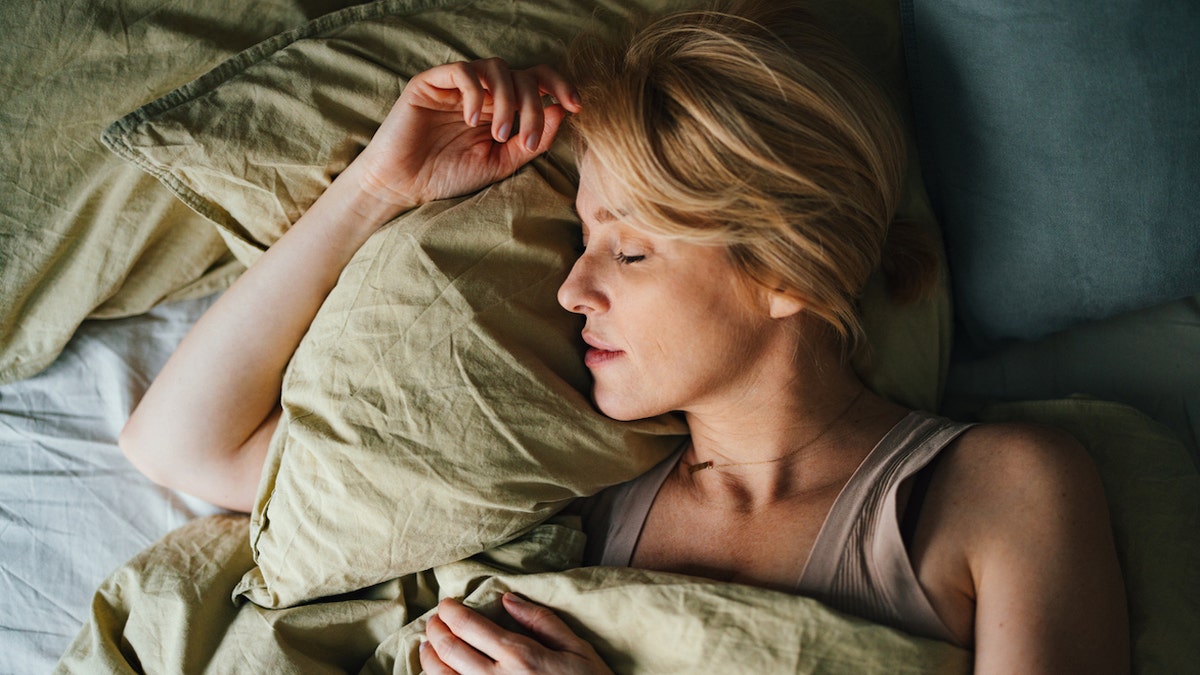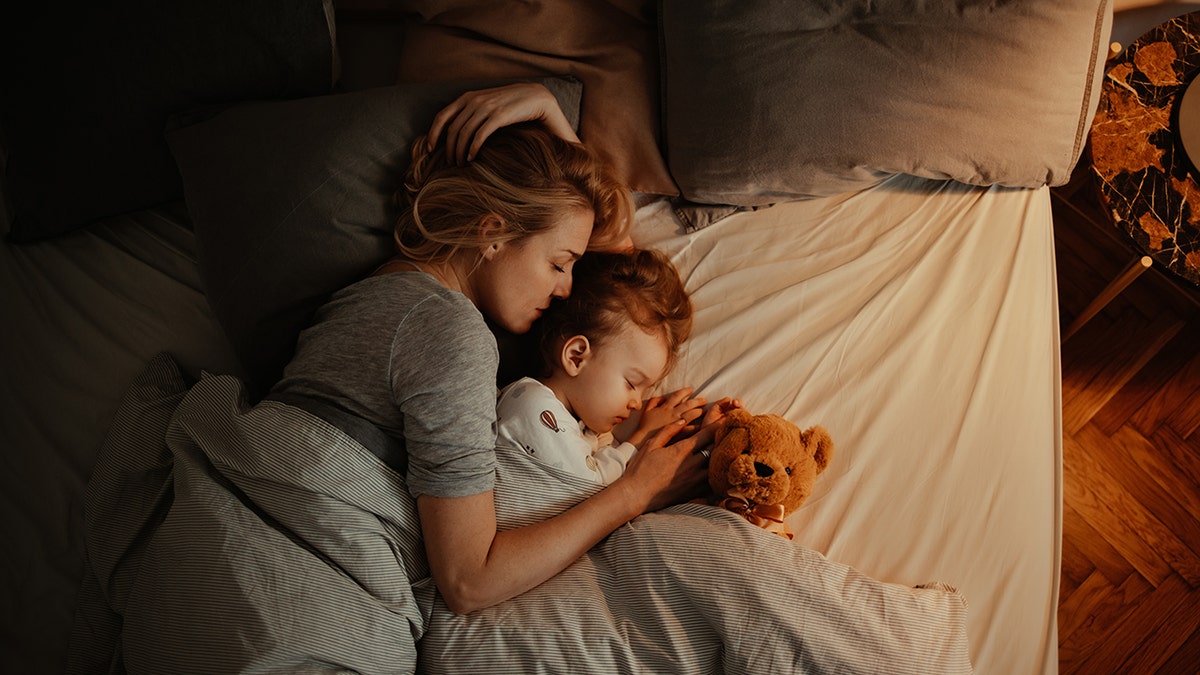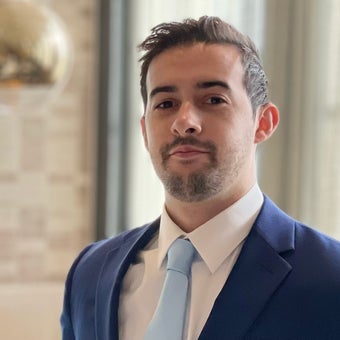'The Five' reacts to 'sleep divorces' among spouses
'The Five' panelists react to married couples separating at night for better rest.
Experts suggest that Americans stop worrying about getting a perfect eight hours of sleep and warn that stressing about the magic number may actually result in a drop in sleep quality and duration.
Dr. Reena Mehra, a director of sleep-disorders research at the Cleveland Clinic, told The Wall Street Journal that consciously focusing on falling asleep may impede the process.
"It works against the individual," she said.
According to the Centers for Disease Control and Prevention (CDC), more than a third of Americans do not achieve the recommended seven to nine hours of sleep per night.
SLEEP PROBLEMS WORSEN DURING THE WINTER, US ADULTS SAY IN NEW SURVEY

Top view of a blonde woman sleeping in bed. (iStock)
The agency also found that quality sleep is defined by major sleep episodes that do not have frequent arousals and the amount of sleep each person needs may be an inherited trait.
One paper looking into the ideal amount of sleep found that "Sleep duration recommendations issued by public health authorities are important for surveillance and help to inform the population of interventions, policies, and healthy sleep behaviors. However, the ideal amount of sleep required each night can vary between different individuals due to genetic factors and other reasons, and it is important to adapt our recommendations on a case-by-case basis."
Furthermore, the National Institutes of Health (NIH) and the American Heart Association (AHA) have concluded that a lack of sleep can correspond with higher rates of heart attack, stroke and a host of other diseases.
FOR QUALITY SLEEP, TIMING IS EVERYTHING, EXPERTS SAY: HERE’S THE SECRET OF SUCCESSFUL SLUMBER

A mother and her daughter sleep in bed together. (iStock)
In the past, a lack of sleep was a sign to bosses and friends that a person was productive and successful. But today, getting a comfy eight hours is seen as a status symbol, with people creating spreadsheets and strategies to maximize their rest.
Researchers, scientists, psychologists and individuals in the sleep business resoundingly told The Wall Street Journal that the best course of action when it comes to sleep is to relax.
Albert Einstein College of Medicine clinical associate professor of neurology and psychology Dr. Shelby Harris said patterns and routines are more important than the magic eight-hour number.
However, she stressed that people do not need to be so rigid that they can no longer sleep at all if they have to break from their routine to work late or deal with a restless child.
Harris also noted that it is essential to remember that humans were able to sleep peacefully well before the advent of drugs and technology.
CLICK HERE TO GET THE FOX NEWS APP
"The pressure we put on ourselves is making sleep worse," she said.


